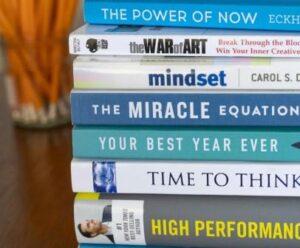Dealing with stress has become an unavoidable part of modern life, whether from work, relationships, or daily responsibilities. Learning how to relieve stress effectively is crucial for maintaining mental and physical well-being. In this article, we’ll explore proven tips that can help you calm your mind and manage stress better. From simple breathing exercises to mindful practices, discover strategies that truly work.
Stress affects everyone at some point, but how we handle it can make a significant difference in our overall happiness and health. If you’ve been feeling overwhelmed and need practical solutions, you’re in the right place. This guide provides actionable tips to relieve stress and cultivate a calmer, more peaceful mind. Let’s dive into techniques that can transform your stress response.
Stress management is key to living a balanced, fulfilling life. Whether you’re struggling with work pressures or personal challenges, knowing how to relieve stress can help you regain control. In this post, we’ll share proven tips designed to calm your mind and reduce anxiety. From lifestyle changes to mindfulness practices, these strategies will empower you to handle stress effectively.
Relieving stress isn’t just about relaxation; it’s about creating lasting habits that promote mental clarity and emotional well-being. If you’re seeking ways to calm your mind, this article offers proven tips that will help you manage stress more effectively. With a focus on simple, practical solutions, you’ll find techniques that fit easily into your daily routine.
Introduction
The Importance of Stress Relief
Managing stress is vital for maintaining both mental and physical health. When left unchecked, stress can lead to a variety of health problems, including high blood pressure, anxiety, and even chronic illnesses. By prioritizing stress relief, you not only protect your well-being but also improve your overall quality of life. Stress relief techniques, such as meditation, exercise, and proper rest, help to calm the mind and promote a more balanced, positive outlook.
Stress affects productivity and can hinder your ability to focus on daily tasks. By practicing effective stress management, you can enhance your cognitive performance and decision-making skills. Reducing stress also improves your mood and strengthens relationships, allowing you to better navigate life’s challenges. Incorporating stress relief strategies into your routine is essential for fostering a healthy, happy, and more fulfilling life.
2) Understanding Stress: Causes and Effects on Your Body
Stress is a natural response your body uses to react to challenges and pressures. While short-term stress can boost performance, chronic stress can have long-term effects on your health. It often arises from various factors like work demands, financial concerns, and personal relationships. Recognizing these triggers is the first step in managing stress effectively and reducing its negative impact.
When stress becomes prolonged, it can lead to physical and emotional health issues. Common effects include headaches, fatigue, and digestive problems, as well as increased anxiety and mood swings. If left unmanaged, stress can weaken your immune system and contribute to more severe conditions such as heart disease and high blood pressure. Understanding how stress affects your body is crucial for taking proactive steps to alleviate it.
The body’s response to stress involves the release of hormones like cortisol and adrenaline, which prepare you to face immediate threats. However, when these hormones are consistently elevated due to ongoing stress, it can lead to serious imbalances. Learning how stress influences both your mind and body will help you adopt better-coping mechanisms, promoting long-term health and wellness.
3) Proven Stress-Relief Tips for a Calmer Mind
Practice Deep Breathing Techniques
Deep breathing techniques are an effective way to manage stress quickly and naturally. By focusing on slow, controlled breaths, you can help activate your body’s relaxation response, reducing the tension caused by stress. Techniques like diaphragmatic breathing and the 4-7-8 method are simple yet powerful ways to calm your mind.
Incorporating deep breathing into your daily routine can make a significant difference in how you cope with stress. Whether you’re at work, home, or on the go, taking a few minutes to focus on your breath helps reduce anxiety and promotes mental clarity. Regular practice will improve your ability to manage in high-pressure situations.
Stress relief through deep breathing isn’t just a short-term fix; it can have lasting benefits for your overall health. Consistent practice can lower your blood pressure, improve your sleep quality, and enhance your emotional well-being. As a result, your mind and body will be better equipped to handle daily stressors.
Incorporate Mindfulness and Meditation
Mindfulness and meditation are powerful tools for reducing stress and promoting a calmer, more focused mind. Mindfulness encourages you to stay present and aware of your thoughts and emotions without judgment, while meditation helps quiet the mind. Together, these practices can significantly lower stress levels and improve mental clarity.
Taking just a few minutes a day to meditate can help you manage more effectively. Guided meditations, breathing exercises, and body scans are all ways to integrate mindfulness into your daily routine. By becoming more aware of your thoughts, you can reduce the negative impact that stress has on your life.
Studies show that mindfulness and meditation can lead to long-term improvements in managing. They can enhance your ability to cope with challenges and reduce anxiety, helping you stay calm in stressful situations. Over time, these practices will boost your emotional resilience and improve your overall well-being.
Exercise Regularly to Combat Stress
Regular physical activity is one of the best ways to relieve stress and improve your overall health. Exercise releases endorphins, which are the body’s natural mood boosters, helping you feel more relaxed and focused. Whether it’s running, yoga, or a brisk walk, exercise is a proven way to combat stress.
Incorporating exercise into your routine doesn’t have to be time-consuming. Even a 30-minute workout a few times a week can make a significant difference in how you manage. Physical activity not only reduces stress hormones but also promotes better sleep, improved mood, and higher energy levels.
Exercise also builds mental toughness, making you more resilient to future stressors. By staying active, you’ll find it easier to manage stress and anxiety in your everyday life. Plus, regular exercise helps improve your overall well-being, allowing you to feel more balanced and in control.
Get Enough Sleep to Restore Balance
Sleep is a crucial factor in managing stress and restoring mental balance. When you don’t get enough sleep, stress levels rise, making it harder to cope with daily challenges. Prioritizing 7-9 hours of quality sleep each night can significantly reduce the negative effects of stress on your body and mind.
Creating a sleep-friendly environment is key to improving sleep quality. By establishing a consistent bedtime routine, reducing screen time before bed, and optimizing your bedroom for relaxation, you can enhance your ability to fall and stay asleep. These habits will help you manage stress more effectively during the day.
Consistent, restful sleep supports emotional well-being, boosts your mood, and sharpens your focus. Without adequate sleep, stress accumulates, leading to burnout and fatigue. Prioritizing sleep not only helps you manage stress but also improves your overall health and productivity.
Limit Caffeine and Alcohol Consumption
Limiting caffeine and alcohol consumption is essential for managing stress effectively. While caffeine can provide a temporary energy boost, excessive intake can increase anxiety and make it harder to relax. Similarly, alcohol might seem like a stress reliever, but it can disrupt your sleep and worsen stress in the long run.
Reducing your caffeine intake, especially in the afternoon and evening, can help you manage better and improve your sleep quality. Opt for herbal teas or water to stay hydrated without increasing anxiety. Likewise, cutting back on alcohol helps maintain mental clarity and emotional balance.
Balancing your consumption of caffeine and alcohol leads to better overall health and improved management. When you minimize these substances, you’ll notice enhanced focus, better sleep, and a calmer state of mind. This approach supports long-term stress relief and greater well-being.
4) Creating a Stress-Free Environment
Organizing Your Space for Peace and Clarity
A cluttered space can lead to a cluttered mind, contributing to higher levels of stress. By organizing your surroundings, you create a calming environment that promotes mental clarity and relaxation. Simple actions like decluttering your desk or arranging your home can significantly reduce and help you feel more in control.
An organized space is a key component of stress relief. Whether it’s your living room, office, or bedroom, keeping things tidy and well-arranged allows you to focus better and eliminate distractions. Reducing the chaos in your environment can lead to a clearer mind, helping you manage more effectively.
Creating a peaceful and organized space helps you foster a sense of calm and control. Establishing a dedicated area for relaxation or work can ease providing a soothing, structured environment. Small changes, like incorporating natural light and minimalist design, can go a long way in reducing stress levels.
Disconnecting from Technology to Recharge
Constant exposure to technology can increase stress levels, as notifications and online distractions keep your mind overstimulated. Taking regular breaks from your devices allows you to recharge and focus on activities that reduce. Whether it’s turning off your phone or setting boundaries around screen time, these habits can have a calming effect on your mind.
Unplugging from technology is an effective way to manage. Spending too much time on screens can overwhelm your senses and disrupt your mental clarity. By disconnecting from technology, you give yourself a chance to relax, breathe, and focus on mindful activities that lower and boost your well-being.
Digital detoxing is essential for relieving today’s tech-driven world. Reducing screen time helps you reconnect with the present moment and engage in activities like reading, meditation, or spending time outdoors. These breaks are vital for maintaining mental balance and reducing caused by constant connectivity.
5) Building Healthy Relationships to Reduce Stress
Strong relationships play a vital role in managing stress. When you have a support system of friends, family, or a partner, it becomes easier to share your feelings and reduce emotional burdens. Healthy communication and trust in these relationships can help you navigate stressful situations more calmly. Building these connections can make a significant difference in how you cope with daily.
Healthy relationships provide emotional stability, which is essential for relief. Being around positive, supportive people can help lower your anxiety levels and improve your mental health. Whether it’s confiding in a close friend or seeking comfort from a loved one, the presence of meaningful relationships serves as a buffer against. Nurturing these connections is key to maintaining balance in your life.
Toxic relationships, on the other hand, can increase and negatively impact your well-being. It’s important to set boundaries and distance yourself from those who contribute to unnecessary pressure or conflict. By focusing on building healthy, constructive relationships, you can create an environment where easier to manage, and your mind can remain calm and focused.
6) Long-Term Stress Management Strategies
Time Management and Setting Boundaries
Managing time effectively is one of the most powerful ways to reduce in your daily life. By organizing your tasks and setting priorities, you can avoid the overwhelming feeling of juggling too many things at once. Creating a schedule helps you stay focused, allowing you to tackle responsibilities with greater ease and less anxiety.
Setting boundaries is just as essential when it comes to managing. Without clear limits, you may find yourself overcommitted or emotionally drained. Learning to say “no” when necessary and prioritizing your well-being ensures that you don’t stretch yourself too thin, helping you maintain a healthier balance between work and personal life.
Incorporating time management and setting boundaries can dramatically reduce levels over time. By gaining control over how you spend your hours and setting clear expectations with others, you’ll create more time for self-care, relaxation, and the things that truly matter.
Engaging in Hobbies and Creative Outlets
Engaging in hobbies is a fantastic way to relieve stress and nurture a calmer, more focused mind. Whether it’s painting, writing, gardening, or cooking, creative outlets allow you to express yourself while taking a break from everyday pressures. These activities help shift your mind from stressful thoughts and provide a much-needed mental escape.
Hobbies and creative activities can improve your mood and lower stress hormones. Doing something you enjoy regularly can offer a sense of accomplishment and fulfillment, which boosts your overall well-being. Creative outlets also allow for personal growth, offering opportunities to explore new skills and passions.
Making time for hobbies and creative outlets is a proven method to relieve. By dedicating time to activities that bring you joy, you can recharge your mind, reduce anxiety, and improve your mental health while enjoying the benefits of creative expression.
7) When to Seek Professional Help for Stress
Stress is a normal part of life, but if it becomes overwhelming and starts interfering with your daily activities, it may be time to seek professional help. When leads to chronic anxiety, irritability, or emotional exhaustion, consulting a mental health expert can provide the guidance and support needed to regain control. A therapist or counselor can help you identify the root causes and develop coping strategies tailored to your specific needs.
Physical symptoms like headaches, sleep disturbances, and digestive issues can be signs that stress is taking a toll on your body. If you’ve tried various self-help methods, such as relaxation exercises or lifestyle changes, but still struggle to manage, seeking professional assistance is crucial. A healthcare provider can offer medical advice or therapy options to alleviate the negative impact on your health.
Prolonged stress can lead to depression or anxiety disorders, making it essential to recognize when it’s time to get help. If feelings of hopelessness, panic attacks, or mood swings become frequent, reaching out to a licensed professional can prevent further emotional harm. Therapy, medication, or a combination of both may be recommended, depending on the severity of your stress. Early intervention ensures better long-term mental health outcomes.
Conclusion
Make Mental Wellness a Daily Priority
In today’s fast-paced world, prioritizing mental wellness is essential for managing and maintaining a balanced life. Taking small steps each day, such as practicing mindfulness, journaling, or setting aside time for relaxation, can help keep stress at bay. By focusing on your mental health, you equip yourself with the tools needed to handle life’s challenges with a calmer mindset.
Build Healthy Habits to Reduce Stress
Developing healthy habits is key to promoting mental wellness and reducing stress. Regular physical activity, proper nutrition, and adequate sleep all contribute to a healthier mind and body. Incorporating these habits into your routine not only boosts your overall well-being but also makes it easier to manage stress when it arises. A proactive approach to self-care can make all the difference in living a free life.
Seek Support for Long-Term Stress Management
Prioritizing mental wellness also means recognizing when you need help managing. Whether through therapy, counseling, or talking with a trusted friend, seeking support can significantly improve your ability to cope. Building a strong support system ensures that you have the right resources in place to maintain your mental health and lead a free life in the long term.



